#Django satire Westerns
Explore tagged Tumblr posts
Text
Posting my review of Django Unchained of Letterboxd here. Maybe some might like it. I feel like most miss the importance of its story and very inception.
Spoilers ahead!
Am I an excessive violence fan? A Western fan?
No. But this film is absolutely amazing. A peak revenge film that has you smiling from ear to ear as you witness Django and Dr. King Schultz take on some incredibly smarmy people.
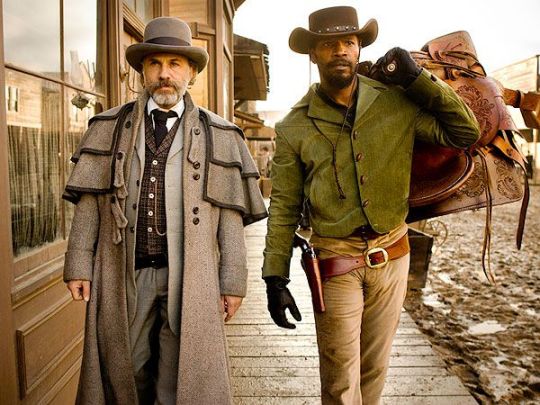
Django Unchained is a fascinating film. Christoph Waltz knocks it it of the park as a lovely and cunning German immigrant with the alias of being a dentist. He brings fun shades of humour and warmth, a perfect contrast for Django's icy personality (though Django is not immune to being just as funny and warm in this film). Christop Waltz and Jamie Foxx, like Schultz and Django alike, complement each other perfectly. Each of their presences is unique and though they are different, they glue you to the screen nonetheless!
Leonardo DiCaprio, when he's not chasing 20-somethings, absolutely fulfills his role as Calvin Candie to the highest degree. He gives off an incredibly perfect amount of ignorance and malice in his role. DiCaprio steals almost every scene he stars in, impossible as it may seem when you have talents like Waltz and Foxx there for the ride. DiCaprio brings such an insufferable unpleasantness to his role that you easily understand why Schultz would instead take a bullet than shake his hand.
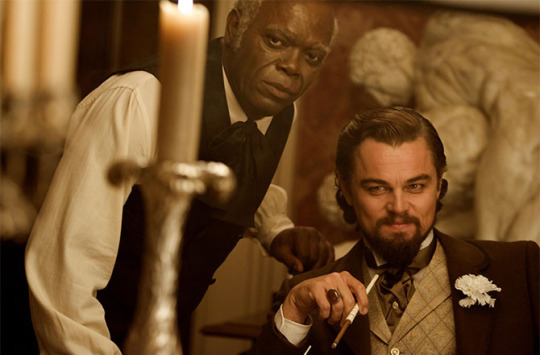
The direction and the cinematography are both amazing and easily backed up by such a star-studded cast.
The film’s handling of slavery and its various nuances has been heavily criticized over the years by many critics. Many of them white. It feels as though these critics have misunderstood that not only this is this a well-done revenge film but it is a blatant satire and commentary on social injustices, the production of blaxploitation films, and the still true notion that our wider society still isn’t ready to have a candid discussion about slavery.
Proper discussion of slavery and its impact has caused for modern cinema audiences have a cautious appetite for authentic, honest and non-sensational films about the slave trade, especially from those that were enslaved. This film was never going to fulfill that. Why must any film with a black lead, one who lives in the past, consist of the same story about slavery? Is that not just forcing a minority group into a box yet again?
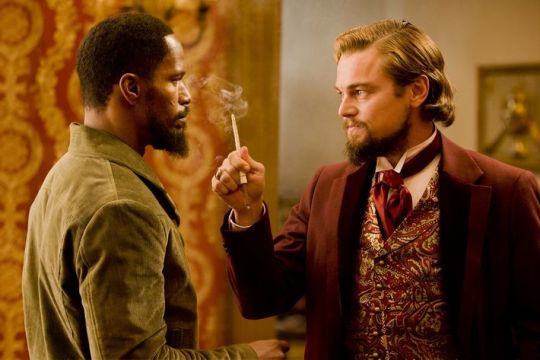
This film had little to do with slavery and instead used slavery as a backdrop for the actual plot. This isn't a film that is about the slave trade. This is a story of revenge that stems from the slave trade. It is a bit different in that regard. This film is about a slave breaking free. The fact that many got incredibly angry over the revenge killing of white people in this film has shown that the commentary has fallen on blind eyes/deaf ears. Ask not why one should be upset about the on-screen killing of whites but why others are enjoying it.
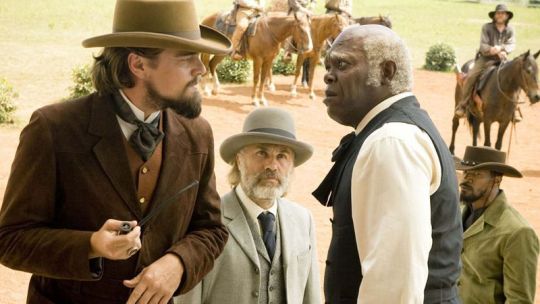
Conservative columnist Jeff Kuhner wrote saying: "Anti-white bigotry has become embedded in our postmodern culture. Take Django Unchained. The movie boils down to one central theme: the white man as devil—a moral scourge who must be eradicated like a lethal virus."
Mr. Kuhner missed the point of the film entirely, focusing only on the killing of white people. A shame indeed. Being upset about a film that involves killing whites while it's set during the time of slavery is quite telling indeed.
Samuel L. Jackson told Vogue Man that "Django Unchained was a harder and more detailed exploration of what the slavery experience was than 12 Years a Slave, but director Steve McQueen is an artist and since he's respected for making supposedly art films, it's held in higher esteem than Django, because that was basically a blaxploitation movie."

Jamie Foxx and Samuel L Jackson seemed to understand what exactly the story was looking to tell. This is a film with social commentary, incredible storytelling, a hell of a soundtrack, and multiple characters to love. It's not perfectly historically accurate but it doesn't need to be. Its story, exposure of blaxploitation films, and its gritty, satisfying revenge make for a killer film that makes sticking it to the "white devil" all the more satisfying. It still isn't enough though.
This is a pure revenge film at its core and it's never been such a greater joy to watch.
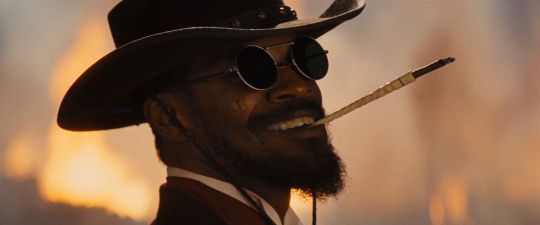
2 notes
·
View notes
Note
Which Quentin Tarantino film would some of the Skins characters like?
I had no idea how to answer this so I fed it into ChatGPT to see what it would come up with. Do we think it did a good job? I kind of love that it decided Effy and Freddie both like Kill Bill the best.
Generation 1
Tony Stonem: "Pulp Fiction" (1994) Tony is charismatic, confident, and enjoys being in control. "Pulp Fiction" is known for its nonlinear narrative, witty dialogue, and complex characters—elements that would appeal to Tony's sophisticated tastes.
Sid Jenkins: "Reservoir Dogs" (1992) Sid is often seen as the awkward and lovable underdog. "Reservoir Dogs," Tarantino's debut film, features a group of criminals with distinct personalities, much like the friendship group in Skins. Sid might appreciate the film's exploration of loyalty, betrayal, and unexpected alliances.
Cassie Ainsworth: "True Romance" (1993) Cassie is a dreamy and romantic character, drawn to the notion of love and escapism. "True Romance" is a love story with a dark twist, involving a pair of star-crossed lovers on the run. Cassie might be captivated by the film's blend of romance, violence, and Tarantino's signature style.
Chris Miles: "From Dusk Till Dawn" (1996) Chris is known for his wild and reckless behavior. "From Dusk Till Dawn" is an action-packed film that starts off as a crime thriller and later shifts into a vampire horror movie. Chris might enjoy the film's mix of adrenaline-fueled action and unexpected genre shifts.
Jal Fazer: "Jackie Brown" (1997) Jal is intelligent, talented, and ambitious. "Jackie Brown" is a crime drama that centers around a smart and resourceful flight attendant caught up in a money-smuggling scheme. Jal might appreciate the film's strong female lead, intricate plot, and Tarantino's homage to blaxploitation films.
Maxxie Oliver: "Death Proof" (2007) Maxxie is a talented dancer and openly gay character. "Death Proof" is a homage to exploitation films, featuring strong female characters and thrilling car chase sequences. Maxxie might enjoy the film's stylish aesthetic and empowered portrayal of women.
Generation 2
Effy Stonem: "Kill Bill: Volume 1 & 2" (2003, 2004) Effy is enigmatic, mysterious, and carries an air of danger. The "Kill Bill" films follow a vengeful assassin seeking retribution against those who wronged her. Effy might resonate with the films' themes of revenge, resilience, and the complex dynamics between the characters.
James Cook: "Inglourious Basterds" (2009) Cook is rebellious, unpredictable, and often involved in confrontations. "Inglourious Basterds" is a WWII film that showcases a group of Jewish-American soldiers seeking vengeance against Nazis. Cook might appreciate the film's audacious storytelling, intense dialogue, and explosive moments.
Naomi Campbell: "Django Unchained" (2012) Naomi is intelligent, politically aware, and passionate about social justice. "Django Unchained" is a revisionist Western that explores themes of slavery and revenge. Naomi might appreciate the film's exploration of racism, its sharp dialogue, and the strong performances by the ensemble cast.
Emily Fitch: "The Hateful Eight" (2015) Emily is compassionate, introspective, and has a strong sense of justice. "The Hateful Eight" is a tense and dialogue-driven film set in a post-Civil War Wyoming blizzard, featuring a group of strangers with hidden agendas. Emily might be drawn to the film's moral complexities, suspenseful atmosphere, and character-driven narrative.
Katie Fitch: "Natural Born Killers" (1994) Katie is bold, impulsive, and occasionally manipulative. "Natural Born Killers" is a controversial film that delves into the media's obsession with violence and celebrity culture, following a pair of murderous lovers on a killing spree. Katie might be intrigued by the film's exploration of societal issues, its frenetic editing style, and its dark satirical commentary.
Pandora Moon: "Once Upon a Time in Hollywood" (2019) Pandora is eccentric, bubbly, and often lives in her own imaginative world. "Once Upon a Time in Hollywood" is a love letter to the golden age of Hollywood, set in 1969 Los Angeles. Pandora might be enchanted by the film's nostalgic atmosphere, charismatic performances, and its blend of fiction with real-life events.
Freddie McClair: "Kill Bill: Volume 1 & 2" (2003, 2004) Freddie is a laid-back, free-spirited character with a love for music. As mentioned earlier, "Kill Bill" might resonate with Freddie due to its stylized action sequences, strong characters, and a story driven by themes of revenge and redemption.
Thomas Tomone: "Jackie Brown" (1997) Thomas is a thoughtful and introspective character. "Jackie Brown" revolves around a complex heist plot and features characters with hidden motives and intricate relationships. Thomas might appreciate the film's nuanced storytelling, its exploration of moral ambiguity, and the strong performances by the cast.
JJ Jones: "Pulp Fiction" (1994) JJ Jones, often referred to as "JJ," is known for his quirky personality and sense of humor. "Pulp Fiction" is a nonlinear crime film with a darkly comedic tone, featuring interconnected stories and eccentric characters. JJ might appreciate the film's witty dialogue, unconventional narrative structure, and the blend of violence and humor that are hallmarks of Tarantino's style. (I had to give it JJ twice because it mixed him up with Cook).
Generation 3
Franky Fitzgerald: "Kill Bill: Volume 1 & 2" (2003, 2004) Franky is a complex and introspective character who explores their own identity throughout the series. "Kill Bill" could resonate with Franky due to its themes of self-discovery, vengeance, and the journey of a strong female protagonist.
Mini McGuinness: "Death Proof" (2007) Mini is portrayed as manipulative and calculating, with a strong personality. "Death Proof" is a film that explores themes of power dynamics and features strong female characters. Mini might appreciate the film's feminist undertones and its blend of action and suspense.
Grace Blood: "True Romance" (1993) Grace is depicted as a sweet and kind-hearted character who values love and romance. "True Romance" is a love story with a dark twist, which might appeal to Grace's idealistic and emotional nature.
Liv Malone: "Pulp Fiction" (1994) Liv is known for her rebellious and free-spirited nature. "Pulp Fiction" is a cult classic with unconventional storytelling and a mix of dark humor and intense moments. Liv might resonate with the film's non-linear narrative and its portrayal of characters living on the fringes.
Rich Hardbeck: "Reservoir Dogs" (1992) Rich is an introverted and mysterious character with a love for music. "Reservoir Dogs" features a group of criminals with distinct personalities, and the film's focus on a botched heist and its aftermath might intrigue Rich's analytical mind.
Alo Creevey: "From Dusk Till Dawn" (1996) Alo is portrayed as carefree, fun-loving, and somewhat mischievous. "From Dusk Till Dawn" starts off as a crime thriller and then takes a supernatural turn, which might appeal to Alo's sense of adventure and his love for excitement.
Nick Levan: "Inglourious Basterds" (2009) Nick is known for his rebellious and impulsive behavior. "Inglourious Basterds" is a WWII film that follows a group of Jewish-American soldiers on a mission of vengeance. Nick might appreciate the film's themes of rebellion, justice, and its stylized action sequences.
Matty Levan: "Jackie Brown" (1997) Matty is often portrayed as mysterious and enigmatic. "Jackie Brown" revolves around a heist plot with intricate relationships and hidden motives. Matty might appreciate the film's complex characters, morally ambiguous situations, and its exploration of trust and loyalty.
16 notes
·
View notes
Text
Sukiyaki Western Django
I do not have much to say about this film sadly. This is definitely up there in the wacky and goofy department in comparison to the many films we have watched in this class. I am not much of a Western guy, and it is not because I dislike the genre. I never realized until watching this film that I just have not consumed much Western styled media, the closest being The Mandalorian which is my favorite Star Wars anything. From that, I know I would enjoy more Western films but I did not really enjoy Sukiyaki Western Django and I think I know why.
I am unfamiliar with many of the tropes and expected themes in the Western genre. This unfamiliarity made me excited to experience more, like this film. Starting with the first scene, I was immediately put off by the stage play-like set. Now looking at it in hindsight, it is honestly a great looking set, but when you are expecting a much more serious tale it all feels weird. As the film progressed, I was constantly unsure if I was supposed to take things seriously or not. Once I saw the leader of the Genji shoot through the Heike grunt's stomach hole, I knew I was in for a ride. This is where my unfamiliarity with Westerns comes into play. I did not get the satire or the jokes being thrown my way. Without understanding the satire, the silly story did not really keep my attention. The only reference or joke I picked up was the sheriff just became Gollum by the end of the film?? I really hate the sheriff man for killing Benten.
Kiyomori and badass Benten were the best parts of the film. Kiyomori’s dumb behavior and antics are what kept me going. His actor did a great job playing up his goofiness and heartlessness, which makes him an enjoyable villain. But he is also the underdog against the Genji because he’s outgunned and outmanned and the main character because of plot armor. The scene that comes to mind is when he and his group raid the carriage bringing the Genji’s secret weapon. When they retaliate with the crank gun, Kiyomori’s whole squad gets wiped out but he simply falls off his horse and rolls out of the way. Definition of slapstick. He also makes everyone call him Henry?? Benten was the other great part of the film for me besides her history with Quentin Tarantino (his character). She is a legendary figure alluded to by the leader of the Genji. Once revealed to be Heihachi’s grandma, she starts turning up. Her animated backstory and then the legendary run she goes on in the final fight of the film are great stuff.

0 notes
Note
So let’s break down these suggestions, because I think they’re rather instructive of the pattern of Lost Cause dominance that I was talking about:
The Outlaw Josey Wales and Ravenous both come to mind. Hateful Eight and Django are both in the vein, if not technically about the Civil War. Glory is good, too. The Good the Bad and the Ugly is set in the ACW. Technically - The Beguiled and Little Women are both in the ACW. If you want something less serious, The General is a great Buster Keaton movie. Also, Uncivil Warriors is a fun ACW Three Stooges story.
The Outlaw Josey Wales is about a Confederate guerrilla fighter who fights for the Confederacy not because of slavery but because Union guerrilla forces kill his family in a clear war crime. He gets his revenge on the evil, sadistic, usually cowardly Union officer and then leaves for the West. It’s not an accident that the movie was based on a novel written by a Klansman who had worked for George Wallace.
This is a particular version of the Lost Cause that I call the Confederate Veteran Protagonist - initially based on pulp fiction dramatizations of the life of Jesse James, this trope became really ubiquitious in Westerns. The common elements are: the protagonist is an ex-Confederate soldier and/or guerrilla fighter, Union forces committed a war crime against them, that is the motivation for their fighting for the Confederacy not slavery, and they usually end their arcs by killing a particularly villainous Union officer.
I hate this trope like poison.
Ravenous is set in the 1840s, so I don’t think it fits.
Hateful Eight and Django Unchained are both post-modern Westerns that satirize or otherwise criticize the Lost Cause, albeit in Tarantino’s particular idiom.
The Good, the Bad, and the Ugly is a Western that sidesteps the Lost Cause. The main protagonists are ultimately out to steal from the Confederacy and don’t really have backstories, and there is a rare depiction (for the time) of the infamous Confederate prison camp at Andersonville. Big fan of this movie.
The Beguiled is more of a Southern Gothic horror psychodrama, although it does continue the trend of presenting Union soldiers as immoral.
Little Women is about an abolitionist family in New England, so it avoids this trope completely.
The General is all about a Confederate soldier who single-handedly outwits an entire Union army, which is kind of bizarre because the actual historical event was a small group of Union soldiers outwitting a Confederate army.
Do you know of any good US Civil War media that doesn't contain Lost Cause mythology? The only recent examples I can think of are Lincoln and Free State of Jones.
It's pretty freaking rare, because the Lost Cause is ubiquitous.
If you're looking for examples, I'd check out Gary Gallagher’s Causes Won, Lost, and Forgotten��and Bruce Chadwick’s The Reel Civil War.
57 notes
·
View notes
Note
tali i have kind of a weird question? growing up my family never watched a lot of classic/common movies (we were FIRMLY a veggie tales house) so I have No Clue what like half of the movies you mention are? like I've never seen footloose or what a wonderful life or die hard? or practically... anything you've ever talked about :(
(also ive never seen mean girls but thats a oersonal failure cas I just. forget to watch it?)
do you have a fav/good movie i should start with cause I feel like I'm missing out on so much :(
hi honey!! you’re so valid, and i had LOTS of veggie tales experience growing up. i know you asked for one, but i went a lil ham on this list because you’ve unknowingly touched on one of my favorite hobbies
okay so i have a big list for you, but it’s in really manageable chunks!! i went to theatre school at the school that houses the Best Cinema School in the World (fight on, usc) and i have Opinions™!!
if anyone has any other recs not on this list, drop em in the replies!!
i’ll put these in order of my preference/pop culture relevance, so it’s all subjective and idk what your taste is like, but if you have any questions im always here for you!! i’ve added a few notes and disclaimers along the way
this is a really good list to go off of, in general!
okay so here are my top seven films that i never get tired of watching, in order.
skyfall
that thing you do
captain america: the first avenger/captain america: winter soldier
inglorious basterds*
the sound of music
knives out
blazing saddles**
* inglorious basterds is a quentin tarantino movie, and tarantino isn’t for everyone. his films are always really bloody, intense, and rife with bad language. i don’t like him personally, but i love his work. this is, in my opinion, his best and funniest work
** blazing saddles is a mel brooks movie, and he’s REALLY offensive and inappropriate in his satire. it’s definitely an iconic comedy, but not to everyone’s taste. it’s one of those movies where you’re actually allowed to laugh at the really horrible jokes because it’s an equal-opportunity offense-fest lmao
so here are some other genres and films that are a good foundation!
IN GENERAL!! i don’t like remakes. if there’s an older version of the movie, watch that one. trust me.
i’ve also bolded a couple of key favorites on this list
romantic comedies
my best friend’s wedding
the ugly truth & 27 dresses (katherine hiegl movies ROCK)
sleepless in seattle & you’ve got mail (meg ryan and tom hanks own my ass)
when harry met sally
movies based on books/short stories
to kill a mockingbird
the book thief
the hunger games trilogy
divergent
chronicles of narnia
pride and prejudice (2005 or the bbc miniseries)
3:10 to yuma
based on a true story
ford v. ferrarri
three billboards outside of ebbing, missouri
moneyball
zero dark thirty
the king’s speech
black mass
apollo 11
documentaries*
ken burns’ civil war
ken burns’ baseball
paris is burning
blackfish
free solo
the hunting ground
* please be advised, some of these documentaries cover some disturbing and distressing subjects. please engage responsibly!
superhero movies
iron man
the dark knight*
wonder woman
scott pilgrim vs the world (okay give me this one)
spider man 1, the amazing spider man, and spiderman: homecoming (all different spidermans, all great movies!
deadpool**
* tdk is really really dark, but the performances are immaculate. ** deadpool is wildly inappropriate, so don’t take the R-rating lightly! it’s so funny though. so so fucking funny.
teen favorites
10 things i hate about you
mean girls
she’s the man
easy a
heathers
70′s icons
jaws
monty python and the holy grail
butch cassidy and the sundance kid
star wars trilogy
dirty harry
80′s classics
alien (technically in ‘79 but feels like an 80′s movie)
dirty dancing
john hughes movies!! the breakfast club, st. elmo’s fire, pretty in pink, sixteen candles, some kind of wonderful
back to the future
footloose
princess bride
90′s flicks
the matrix
three men and a baby
thelma and louise
pretty woman
notting hill
a league of their own
lgbt +
our own private idaho
brokeback mountain
moonlight
philadelphia
call me by your name
love, simon
some of these movies don’t get everything right. if you do choose to engage, engage critically and let the art make you feel something.
tom hanks movies
yes he gets his own category
joe v the volcano
castaway
big
saving mr banks
movies where the government saves matt damon
the martian
saving private ryan
interstellar
jason bourne (technically he saves himself, but he’s still funded by the government)
war movies
fury
band of brothers
full metal jacket
the last full measure
war horse
1917
hacksaw ridge
westerns
django unchained
the magnificent seven
true grit
the good the bad and the ugly
a fistful of dollars
old hollywood
an affair to remember
breakfast at tiffany’s, roman holiday (audrey hepburn is an icon of the era)
any alfred hitchcock movie, but psycho and rear window are my faves
these movies don’t get everything right. they are a product of their time and often come with insensitive and unironically offensive cultural baggage. if you so choose, engage critically. you’re still allowed to enjoy the movies, just understand what’s not acceptable!
christmas movies
it’s a wonderful life
white christmas
a christmas story
the holiday
die hard (some people don’t think this is a christmas movie. i disagree.)
the family stone
a year without a santa clause
halloween movies
hocus pocus
beetlejuice
anything by tim burton - the nightmare before christmas, the corpse bride
the shining
the blair witch project
get out
cult classics
the rocky horror picture show
the room
reservoir dogs
jennifer’s body
point break
these are WAY more fun with friends - please quarantine responsibly, but it's so worth the wait to watch this with a big group of people.
28 notes
·
View notes
Link
Historical movies can be very dry because the characters don’t speak in a manner that’s relatable and the monumental, earth-shattering events that changed the course of human history don’t resonate if they’re presented in a boring, academic way. The best historical movies are the ones that inject a healthy dose of entertainment — even if that means slightly fictionalizing the story.
RELATED: Close Your Eyes!: 10 Behind-The-Scenes Facts About The Favourite
Yorgos Lanthimos’ Oscar-winning gem The Favourite, starring Olivia Colman, is a prime example of a historical epic that isn’t dull, because it has a pitch-black comedic sensibility. A dark sense of humor is a great way to make history more interesting.
10 The Favourite (2018)

After exploring a dark near-future in The Lobster, Yorgos Lanthimos went back to the 1700s for The Favourite, a historical love triangle revolving around Queen Anne and the two women vying for the position of “Court favourite.”
Olivia Colman, Emma Stone, and Rachel Weisz are all perfectly matched in the lead roles, while Robbie Ryan’s cinematography recalls the sumptuous visuals of Barry Lyndon.
9 The Death Of Stalin (2017)

Renowned political satirist Armando Iannucci turned his sights to Soviet history with 2017’s The Death of Stalin, a hysterical comedy about the power struggle following the 1953 death of Joseph Stalin.
Essentially, Iannucci told the story of Stalin’s demise and the fight for control of the Soviet Union as a feature-length episode of The Thick of It or Veep set in Russia.
8 Full Metal Jacket (1987)
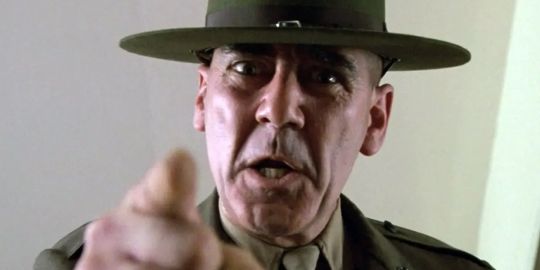
In the first half of Stanley Kubrick’s Full Metal Jacket, a bunch of Marines go through boot camp and have their individuality chipped away. In the second half, they’re shipped off to war, where they lose their humanity.
RELATED: Full Metal Jacket & 9 Other Darkly Comedic War Movies
While there are plenty of harrowing twists and turns along the way, Full Metal Jacket is filled with Kubrick’s signature dark humor — particularly in R. Lee Ermey’s scenes. In the role of Gunnery Sergeant Hartman, Ermey was allowed to improvise (a rarity for a Kubrick movie), drawing on his own experiences as a drill sergeant to whip the cast into shape. The movie ends with the soldiers ironically singing the “Mickey Mouse March” as they leave the Battle of Huế.
7 Marie Antoinette (2006)
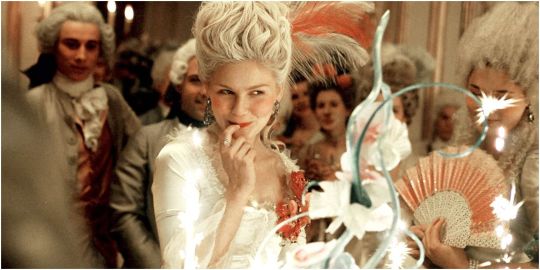
Sofia Coppola’s biopic of Queen Marie Antoinette in the lead-up to the French Revolution is shot in the cerebral style of Malick and Kubrick but written in the style of a teen comedy.
Kirsten Dunst gives one of her all-time most memorable performances in Marie Antoinette as the title character, while Rose Byrne, Jason Schwartzman, Molly Shannon, and Rip Torn all provide strong support.
6 Django Unchained (2012)
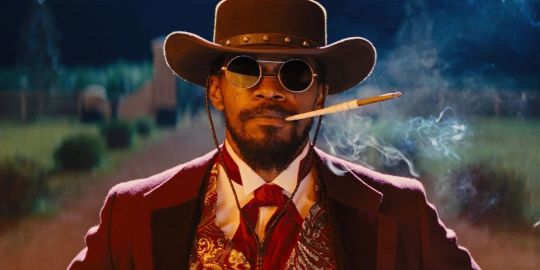
The subject matter of Quentin Tarantino’s Django Unchained — American slavery — made its dark sense of humor a point of controversy when it first hit theaters in 2012.
Starring Jamie Foxx as a freed slave who becomes a bounty hunter killing white slavers for a living, Django Unchained is both a masterfully crafted spaghetti western and an incisive satire about the ugliest chapter in U.S. history.
5 I, Tonya (2017)

Margot Robbie starred as Tonya Harding in this darkly comic dramatization of the famous figure skater’s 1994 attack on Nancy Kerrigan. I, Tonya tells its story through mockumentary-style interviews with its unreliable narrators.
Sebastian Stan co-stars as Harding’s friend and later husband Jeff Gillooly, while Allison Janney won an Oscar for her turn as Harding’s abusive mother LaVona Golden.
4 Love And Death (1975)

Long before his disturbing scandal, Woody Allen’s Love and Death went over a lot of audiences’ heads back in 1975, because it’s predominantly a satire of Russian literature. It follows two Russians as they struggle through the Napoleonic Era.
Napoleon Bonaparte is played by James Tolkan, most renowned for playing Mr. Strickland in the Back to the Future trilogy, while Diane Keaton reprises her regular role as Allen’s comic foil.
3 Goodfellas (1990)
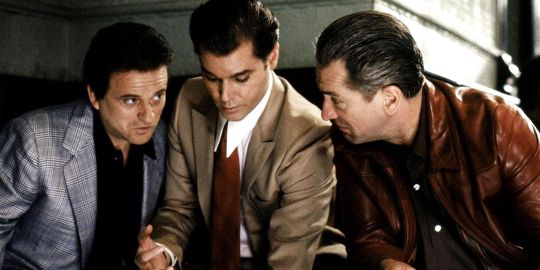
Martin Scorsese’s Goodfellas is primarily a drama, but it has more laughs than the average full-on comedy. Scenes like the “Funny how?” confrontation and a drunken Henry laughing hysterically at his mother-in-law make Goodfellas a hilarious movie.
RELATED: Goodfellas: 5 Ways It's Scorsese's Best Movie (& 5 Alternatives)
It’s also a poignant portrait of the mafia. This movie offers such an accurate portrayal of mob life that real-life gangsters have said it plays like a home movie.
2 BlacKkKlansman (2018)

John David Washington stars in Spike Lee’s BlacKkKlansman, the incredible true story of a Black cop who managed to become a member of the Ku Klux Klan over the phone and sent his Jewish colleague in his place to the KKK’s meetings. Since the story is so astounding and a Black man tricking the Klan is inherently comedic, Lee brought a healthy amount of humor to this movie.
Although it’s set in the ‘70s, Lee’s movie captured contemporary fears about the rise of neo-Nazism and white nationalism in present-day America.
1 Barry Lyndon (1975)

One of Kubrick’s more underrated works, Barry Lyndon tells the saga of a duelist who wins the love of a widow and takes the place of her deceased aristocratic husband.
From its surprisingly hilarious opening duel, Barry Lyndon positions itself firmly as a dark comedy, like most of Kubrick’s other movies.
NEXT: Catch Me If You Can & 9 Other Biopics With A Sense Of Humor
The Favourite & 9 Other Darkly Comedic Historical Epics from https://ift.tt/3r1ysdW
2 notes
·
View notes
Photo

They don’t make movie jerks anymore like Don Johnson, who turns 71 today. A few of his heel turns:
David Simms in Tin Cup. D: Ron Shelton (1996). Don Johnson was a television superstar in the 80s and 90s but in films, he was at his best playing smarmy jerkwads like Simms, a pro golfer who has the number of Roy “Tin Cup” McAvoy (Kevin Costner), a former rival trying to make a comeback. As McAvoy describes him “He hates women, children and dogs” and in the film’s funniest moment, he proves that is true. And while he goes out a winner, the film is about how winning isn’t even close to everything, especially when the loser gets your girlfriend (Rene Russo).
Spencer “Big Daddy” Bennett in Django Unchained. D: Quentin Tarantino (2012). As a plantation owner and night rider in Quentin Tarantino’s slavery-revenge western,Johnson has one of the ugliest and funniest moments in the movie when Bennett, about to set his posse against bounty hunter King Schultz (Christoph Waltz) and Django (Jamie Foxx). “We’re gonna whoop that n----r lover to death!” he says, and I am personally gonna strip and clip that gaboon myself!” And then his resolve falters when he can’t get him mask on right.
Richard Drysdale in Knives Out. D: Rian Johnson (2019). Rian Johnson’s script used the pretext of an ingenious, locked-door murder mystery to satirize the cultural politics of the Trump era. Drysdale, who can defend the “immigrant kids in cages” policy and deflect from his racism by quoting “Hamilton” was one of the slickest pieces of work in the movie. Plus, he was cheating on Jamie Lee Curtis.
2 notes
·
View notes
Text
My Love Affair with D'Jango Unchained
I am a lover of stories. Preferably of whimsical tales of yore, or one with turns and twists. I love heroes; I especially love when the underdog wins. I crave a believable, succinct plot. My need for a story with a plot with no holes in it is why I hate Tyler Perry movies, simply because his plots leave a lot to be desired! Black cinema leaves a lot to be desired period. I don't want a story of black, everyday life drama: the down and out mom, struggling to find love while raising her kids; the gangster tales; the cheating husband; the comedian in drag parading as an old grandma or ghetto chick. Of course, as is the case of "black trailblazers" we pay homage to these movies because they were the firsts of their kinds, and in the case of School Daze, Malcolm X and Boyz in the Hood, masterpieces, but more often than not pandering to what makes money. And while we have had our Tyler Perry and Spike Lee and John Singleton, none has produced that one whimsical, fantasy, tale of a black hero. There has been no tale of adventure, love, struggle and history all wrapped together in one movie sitting told from the black experience. And I have waited, loving instead the stories of Sherlock Holmes and all the others Hollywood has given me instead. I have finally been given my black hero tale. I have been given all my heart has desired in a movie! I will be honest. When I first heard of the movie Django, I felt it was going to be a Catcher Freeman-esq film with some slave with super powers and he goes around self-righteously killing white slave owners as far as the eye could see. You Boondocks fans know who Catcher Freeman is, and can identify with my angst. Clearly, a slave hero would be all we need him to be: cunning, strong, manly, compassionate, loving, and fighting for his freedom. Django is my new hero. He was everything I envisioned a hero slave man to be. He was wise beyond measure; the same wisdom Jim had in Huckleberry: a slave but wise nonetheless. His character was realistic, and outlined the paradox of his existence. And when he chose his royal blue outfit! I believe I could see that being a truthful occurrence! He did everything he could to save his lady love, and had her at the tales end. The plot was so dead on, Django managed to have a foil in Stephen, Sam L. Jackson's version of a head house slave who loves his master. Nothing in the plot was left to chance, and the well placed suspense kept you wondering what was next! A brutal killing, or a laugh. The sarcasm and satire was abundant, even poking fun at the early KKK. The writing was fantastic; the music was well-placed and perfectly selected. There wasn't much this movie lacked. Jamie Foxx as Django was superb. At first, it was hard for me to accept that he could portray a character of this magnitude, as I keenly remember his stand-up and In Living Color days. Even the Academy Award didn't make me a believer, and he beat out some heavy hitters such as Johnny Depp, Leonardo DiCaprio, and Clint Eastwood. Fox is just absolutely gifted as an actor, and I believe this movie solidified his standing. Foxx's D'Jango ousts Downey's Sherlock Holmes, which prior to today, ranked as one of the best performances by an actor to me. I love Heath Leger's Joker, Joaquin Phoenix's Mr. Watson, Kelsey Grammar's Robert Langdon, among other heroes or villains. And boy do I love a good villain! Disney's Maleficent in Sleeping Beauty is by far the most menacing villain in the repertoire. Yes. I have a sick, twisted affinity for villains. Leonardo DiCaprio's Calvin Candie was brilliant. You wanted to hate evvvvvverything about him, but the Southernly Gentleman in him made you slightly forgive him. He was what a young slave owner probably looked like: renegade, above the law, charming, psychotic. The quintessential slaver. Who was Mandingo fighting.... Absolutely brilliant acting. DiCaprio was said to have struggled with the harsh language and some of the scenes, but you would have never known because he was Calvin Candie. While I could not watch many graphic parts of this film, and the use of the word "nigger" made me flinch several times, it was necessary. Slavery was gruesome and horrible and heartbreaking. Clearly understating this would have been to the detriment of the film. It is a wonderful slave tale. If you are looking for homage, or a documentary, or something to be entered to the discussion on slave matters, this movie is not it. While people feel this movie is insensitive or disrespects our ancestors, I beg to differ. Every culture has its hero in cinema. None of them has looked like me. Slave culture unfortunately is our culture; how have we gone this long with no slave hero? We have no Don Quixote. No Three Musketeers. No Robin Hood. We now have our Romanticised slave story. As is expected of Quintin Tarantino, he delivered a Tarantino film. He gave us a romantic fantasy, equipped with the dark humor that is a Tarantino creation. It had its parts where you did not want to laugh (such as the character of Samuel L. Jackson and his ridiculous cursing) but couldn't help it, and parts where you could not laugh. Every emotion imaginable could have been experienced. It was 2 hours and 45 minutes of master cinema.
0 notes
Photo

Quentin Tarantino.Portrait.Cannes 1996.
Contax Rtsiii Carl Zeiss Tessar T* 300mm f/4 Kodaktmax400
Powered by Dell
Quentin Jerome Tarantino ( born March 27, 1963) is an American filmmaker and actor. His films are characterized by nonlinear storylines, satirical subject matter, an aestheticization of violence, extended scenes of dialogue, ensemble casts consisting of established and lesser-known performers, references to popular culture and a wide variety of other films, soundtracks primarily containing songs and score pieces from the 1960s to the 1980s, and features of neo-noir film. His career began in the late 1980s when he wrote and directed My Best Friend's Birthday, the screenplay of which later formed the basis for True Romance. In the early 1990s, he began his career as an independent filmmaker with the release of Reservoir Dogs in 1992, which was funded by money from the sale of his script Natural Born Killers to Oliver Stone. Empire deemed Reservoir Dogs the "Greatest Independent Film of All Time". Its popularity was boosted by his second film, Pulp Fiction (1994), a black comedy crime film that was a major success both among critics and audiences.For his next effort, Tarantino paid homage to the blaxploitation films of the 1970s with Jackie Brown (1997), an adaptation of Elmore Leonard's novel Rum Punch. Kill Bill, a highly stylized "revenge flick" in the cinematic traditions of Kung fu films, Japanese martial arts, Spaghetti Westerns and Italian horror, followed six years later, and was released as two films: Volume 1 in 2003 and Volume 2 in 2004. Tarantino next directed Death Proof in 2007, as part of a double feature with Robert Rodriguez, under the collective title Grindhouse. His long-postponed Inglourious Basterds, which tells an alternate history of Nazi Germany, was released in 2009 to positive reviews. After that came critically acclaimed Django Unchained (2012), a Western film set in the Antebellum South. His eighth film, The Hateful Eight (2015), was released in its roadshow version in 70 mm film format, with opening "overture" and halfway-point intermission. His ninth film, Once Upon a Time in Hollywood, is scheduled to be released in 2019. Tarantino's films have garnered both critical and commercial success. He has received many industry awards, including two Academy Awards, two Golden Globe Awards, two BAFTA Awards and the Palme d'Or, and has been nominated for an Emmy and a Grammy. In 2005, he was included on the annual Time 100 list of the most influential people in the world.Filmmaker and historian Peter Bogdanovich has called him "the single most influential director of his generation".In December 2015, Tarantino received a star on the Hollywood Walk of Fame for his contributions to the film industry.
#Quentin Tarantino#portrait#american#actor#film maker famous#hollywood#expression#movies#cinema#american cinema#analog camera#anlog film#cannes#france#film festival#Black and White
4 notes
·
View notes
Text
Genres of Movies and Their Subgenres
Film genres can be categorized into several subgenres, depending on the type of story that they are. Some of these genres are Docudrama, Euro-westerns, Spaghetti Westerns, and Crime-comedies. The genres listed above are all very popular. To find more information, visit the Wikipedia page for each of these categories. If you have trouble deciding what type of movie to watch, consider these subgenres. "โคนันเดอะมูฟวี่ 22"
Docudrama
The term docudrama refers to a documentary film about a non-fiction subject. This type of film can be classified according to the year it was made and the director. Listed below are the best docudramas. You can also sort them by director or title. Each of them is ranked from best to worst, based on the type of content and cast. This article will cover the basics of docudrama movies and help you decide which ones to watch.
A docudrama is a documentary film that tells a story from a real-life event. These movies are usually very well-received by the public and are popular with advertisers. The movies are also cheaper to produce than feature films because they focus on a known recent event. In addition, they do not require expensive promotion, which makes them a good choice for budget-conscious producers. Therefore, they are becoming increasingly popular.
Euro-westerns
This comprehensive reference guide reveals the full history of Euro-westerns. It also includes a foreword by Franco Nero, star of films such as Keoma, A Professional Gun, and Django. The foreword provides a historical overview of Euro-westerns and explains how these films developed. Although the early Euro-westerns were hit-and-miss, their formative years are well documented in this book.
A detailed analysis of the film industry in Italy reveals a rich history of local and national elements within the Western. The book also examines the mechanics of Italian popular film making and spotlights unsung western artists. The book includes both historical and contemporary photos. For many, Euro-westerns have become a cultural phenomenon worth exploring. And, in spite of their shortcomings, they're still a rich source of entertainment for those who enjoy the genre.
Spaghetti Westerns
Spaghetti Westerns are genre films produced in Italy during the 1960s and 1970s. Although the production values of these films were lower than Hollywood counterparts, these films are known for their violence and complex characters. They are considered a great counterpoint to mainstream Hollywood films. Here are some of the best spaghetti westerns of all time:
The spaghetti western genre is a subgenre of Western films. The spaghetti-style of filmmaking was popularized by the Dollars Trilogy by Sergio Leone, and later by films produced in Europe and the United States by Italian producers. These films are typically based on Italian films and often feature actors from other countries. Spaghetti westerns are also known for their colorful and zany characters. The spaghetti-style movies are generally considered to be among the most successful genres of Western films.
Crime-comedy
The term "crime-comedy" isn't new. Films in the genre are typically based on true crime stories. Many movies are a satire of real life events, but there are also light-hearted, entertaining examples. Stand Up Guys, starring Al Pacino, Christopher Walken, and Alan Arkin, is one such example. This film centers on hired killers and betrayals, but with a light-hearted twist. Its director, the Coens, has been credited with a number of classic crime movies, and Tarantino's latest film is a masterpiece.
The movie "Goodfellas" is another great example of a crime-comedy. The movie, directed by Guy Ritchie, is one of the best British-made crime movies. It doesn't feature conventional star power, but it's an entertaining watch. William H. Macy's character stutters in the script, and the movie still feels like a classic crime drama.
0 notes
Text
Archive Project - June 2, 2014 - A Million Ways to Die in the West Review
A Million Ways to Die in the West, 2014. Seth McFarlane 116 Minutes Seth McFarlane as an artist has probably more leverage than any human being on Earth right now as far as anybody in the entertainment industry goes. After a decade at the wheel of two of the most popular animated TV shows in the US, Seth broke out into Hollywood with his directorial debut Ted, one of the funniest movies of 2012. Then just this year, he managed to push through a revival of Cosmos, a heavily science based show which he gave a new home on the Fox Network, a channel widely regarded for better or worse for it's right of center and heavily religious news pundits and low brow comedy. McFarlane's newest project is A Million Ways to Die in the West. A parody of the classically renown Western Genre with a more satirical tone towards the genre, starring him! The catch: the west really sucks… Yah.. It wasn't really that good… Which is a shame! I was really excited to see this and given his track record with Ted and Family Guy I felt that we missed out on what could have been something really great. Other than a few genuinely funny jokes and a couple of gratuitous celebrate cameos, the length of this movie's obnoxiously long runtime is a tedious, nasty drag through Seth McFarlene's sense of humor. In light of this, i've decided to usurp my normal critical analysis of the movie's myriad problems and merely provide a list of some of my thoughts about the movies that came to mind while I was watching it: Take it away me!! 1. Seth McFarlane can't act… 2. If it weren't for the Jesus is Pro-Abortion commercial, this would probably be my least favorite thing with Sarah Silverman in it! 3. What was the point of bringing in Bill Maher for a cameo if your not going to have him proselytize his liberal bias or make fun of people's religion? 4. Did the trailer really have to give away the Doc Brown cameo? 5. Oh, Neil Patrick Harrison said "Challenge Accepted"… I get it.. ha ha ha 6. Eww thats gross.. I wish it were funny… 7. I really could have gone my entire life without seeing this many pairs of sheep's penises… 8. Haha Django Unchained reference! That's slightly clever! 9. Where did all the other characters go? When will we get to the funny scenes from the trailer? 10. Why are they making a Ted 2? The last time Hollywood tried to make a sequel to a beloved comedy movie we got Anchorman 2.. and how much better is the world for getting that? Recommendation: Don't. Thank you for reading! Live long and prosper!
0 notes
Text
New Post has been published on Top 10 of Anything and Everything!!!
New Post has been published on http://theverybesttop10.com/most-successful-western-films/
The Top 10 Most Successful Western Films of All Time


The Top 10 Most Successful Western Films of All Time
They go under many names: Cowboy films, Sh1t Kickers, Gunslingers…but most people will simply call them Westerns. They are the original Wild West films and some of them earned more money than many of today’s big Hollywood blockbusters…
The Top 10 Most Successful Western Films of All Time

Unforgiven
10 – Unforgiven (1992) (Gross Earnings: $101.16M)
Wiki Info: When prostitute Delilah Fitzgerald (Anna Thomson) is disfigured by a pair of cowboys in Big Whiskey, Wyoming, her fellow brothel workers post a reward for their murder, much to the displeasure of sheriff Little Bill Daggett (Gene Hackman), who doesn’t allow vigilantism in his town. Two groups of gunfighters, one led by aging former bandit William Munny (Clint Eastwood), the other by the florid English Bob (Richard Harris), come to collect the reward, clashing with each other and the sheriff.

Maverick
9 – Maverick (1994) (Gross Earnings: $101.63M)
Wiki Info: This film update of the “Maverick” TV series finds the title cardsharp (Mel Gibson) hoping to join a poker contest with an impressive payoff. In order to enter, Maverick must first put up a large cash sum. He scams hopeful contestants Annabelle (Jodie Foster) and Angel (Alfred Molina) in a preliminary card game to win the money he needs, making enemies of both players. While trying to evade Annabelle and Angel, the crafty Maverick realizes a cunning marshal (James Garner) is also on his tail.

Butch Cassidy and the Sundance Kid
8 – Butch Cassidy and the Sundance Kid (1969) (Gross Earnings: $102.31M)
Wiki Info: The true story of fast-draws and wild rides, battles with posses, train and bank robberies, a torrid love affair and a new lease on outlaw life in far away Bolivia. It is also a character study of a remarkable friendship between Butch – possibly the most likeable outlaw in frontier history – and his closest associate, the fabled, ever-dangerous Sundance Kid.

Wild Wild West
7 – Wild Wild West (1999) (Gross Earnings: $113.75M)
Wiki Info: When President Ulysses S. Grant (Kevin Kline) learns that diabolical inventor Dr. Arliss Loveless (Kenneth Branagh) is planning to assassinate him, he orders Civil War hero James West (Will Smith) and U.S. Marshal Artemus Gordon (also Kline) to arrest him. West’s trigger-happy personality doesn’t always mesh well with that of the thoughtful Gordon, but they manage to work together. And with the help of a mysterious stranger (Salma Hayek), West and Gordon close in on Loveless.
(adsbygoogle = window.adsbygoogle || []).push();

Blazing Saddles
6 – Blazing Saddles (1974) (Gross Earnings: $119.50M)
Wiki Info: In this satirical take on Westerns, crafty railroad worker Bart (Cleavon Little) becomes the first black sheriff of Rock Ridge, a frontier town about to be destroyed in order to make way for a new railroad. Initially, the people of Rock Ridge harbor a racial bias toward their new leader. However, they warm to him after realizing that Bart and his perpetually drunk gunfighter friend (Gene Wilder) are the only defense against a wave of thugs sent to rid the town of its population.

Rango
5 – Rango (2011) (Gross Earnings: $123.21M)
Wiki Info: A chameleon (Johnny Depp) who has lived as a sheltered family pet finds himself in the grip of an identity crisis. Rango wonders how to stand out when it is his nature to blend in. When he accidentally winds up in a frontier town called Dirt, he takes the first step on a transformational journey as the town’s new sheriff. Though at first Rango only role-plays, a series of thrilling situations and outrageous encounters forces him to become a real hero.

Django Unchained
4 – Django Unchained (2012) (Gross Earnings: $162.80M)
Wiki Info: Two years before the Civil War, Django (Jamie Foxx), a slave, finds himself accompanying an unorthodox German bounty hunter named Dr. King Schultz (Christoph Waltz) on a mission to capture the vicious Brittle brothers. Their mission successful, Schultz frees Django, and together they hunt the South’s most-wanted criminals. Their travels take them to the infamous plantation of shady Calvin Candie (Leonardo DiCaprio), where Django’s long-lost wife (Kerry Washington) is still a slave.

True Grit
3 – True Grit (2010) (Gross Earnings: $171.03M)
Wiki Info: After an outlaw named Tom Chaney (Josh Brolin) murders her father, feisty 14-year-old farm girl Mattie Ross (Hailee Steinfeld) hires Rooster Cogburn (Jeff Bridges), a boozy, trigger-happy lawman, to help her find Chaney and avenge her father. The bickering duo are not alone in their quest, for a Texas Ranger named LaBoeuf (Matt Damon) is also tracking Chaney for reasons of his own. Together the unlikely trio ventures into hostile territory to dispense some Old West justice.
(adsbygoogle = window.adsbygoogle || []).push();

The Revenant
2 – The Revenant (2015) (Gross Earnings: $183.64M)
Wiki Info: While exploring the uncharted wilderness in 1823, frontiersman Hugh Glass (Leonardo DiCaprio) sustains life-threatening injuries from a brutal bear attack. When a member (Tom Hardy) of his hunting team kills his young son (Forrest Goodluck) and leaves him for dead, Glass must utilize his survival skills to find a way back to civilization. Grief-stricken and fueled by vengeance, the legendary fur trapper treks through the snowy terrain to track down the man who betrayed him.

Dances with Wolves
1 – Dances with Wolves (1990) (Gross Earnings: $184.21M)
Wiki Info: A Civil War soldier develops a relationship with a band of Lakota Indians. Attracted by the simplicity of their lifestyle, he chooses to leave his former life behind to be with them. Having observed him, they give the name Dances With Wolves. Soon he is a welcomed member of the tribe and falls in love with a white woman who has been raised in the tribe. Tragedy results when Union soldiers arrive with designs on the land.
0 notes